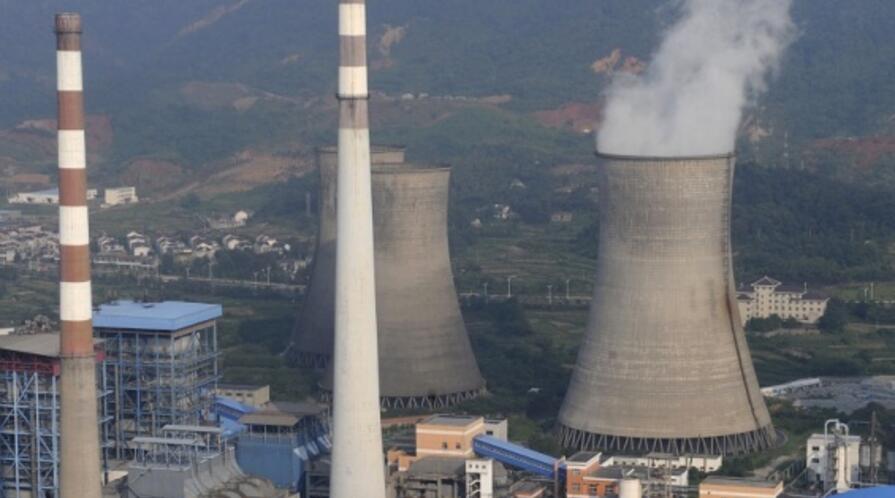Wolak's climate op-ed featured in the UK Guardian
Any mention of climate policy was noticeably missing from President Obama's recent state of the union address. This is unfortunate because every day of inaction on climate policy by the United States government is another day that American consumers must pay substantially higher prices for products derived from crude oil, such as gasoline and diesel fuel. Moreover, a substantial fraction of the revenues from these higher prices goes to governments of countries that the US would prefer not to support.
So, what is the cost of a single day of delay? US crude oil consumption is approximately 20m barrels per day and roughly 12m barrels per day are imported. An oil price that, because of climate policy uncertainty, is $20 a barrel higher than it would otherwise have been implies that US consumers pay $400m per day more, of which $240m per day is paid to foreign oil producers. Dividing these figures by the United States population implies that every US citizen is paying about $1 per day more for oil - and more than half of that may be going to an unfriendly foreign government.
Why does this climate policy price premium exist? It is not due to a dearth of readily available technologies for producing substitutes for conventional oil. A number currently exist that are economic at oil prices significantly below current world prices of $80-90 per barrel. Several even have the potential to scale up to replace a large fraction of US oil consumption.
Tar sands and heavy oils, gas-to-liquids and coal-to-liquids are all available to produce substantial amounts of conventional oil substitutes at average costs at or below $60 per barrel. If these technologies were currently in place throughout the US, the world price of oil would not exceed that price, because any attempt by conventional oil suppliers to raise prices beyond that level would immediately be met by additional supply from producers of oil substitutes.
But if these technologies are financially viable at current world oil prices, then why don't they exist in the US? That's because they require massive up-front expenditures to construct the necessary production facilities. These fixed costs, plus the variable costs of production, must be recovered from sales over the lifetime of the project - and future climate policy can substantially increase the variable costs of these technologies.
Climate policy uncertainty impacts of the economic viability of these technologies because of the increased carbon intensity of the gasoline and diesel fuel substitutes they produce. Almost double the greenhouse gas emissions result per unit of useful energy produced and consumed relative to conventional oil. Therefore, if the US decided to set a significant price for carbon dioxide (CO2) emissions at some future date, either through a cap-and-trade mechanism or carbon fee, investors in these technologies would immediately realise a massive loss - because they would have to pay the price fixed for all of the CO2 emissions that result from producing and consuming these oil substitutes.
To understand this point, suppose that a technology exists to convert coal to an oil substitute that is financially viable at an oil price of $60 per barrel and that this technology produces double the CO2 per unit of useful energy relative to oil. At a $90 per barrel oil price, this technology could be unprofitable for a modest price of carbon dioxide (CO2) emissions because of its substantially higher carbon intensity. For instance, at a $100 per ton price of CO2 emissions - which is roughly twice the highest price observed in the European Union's emissions permit trading scheme - the total cost per barrel of oil equivalent, including the cost of the additional emissions, could easily exceed $90 per barrel.
A solution to this investment impasse is a stable, predictable price of carbon into the distant future. Although there is currently a regional cap and trade mechanism for CO2 emissions in the Northeast US, permit prices in the Regional Greenhouse Gas Initiative (RGGI) have been extremely modest - less than $5 per ton of CO2. California also plans to implement a cap-and-trade mechanism in 2012. No significant coal-mining activity takes place in the participating RGGI states or in California. But such regional cap-and-trade programmes are unlikely to set prices for CO2 emissions for a long enough time and with sufficient certainty to encourage investment in facilities to produce conventional oil substitutes. In other words, despite regional experiments with cap-and-trade, it is the national climate policy uncertainty that remains the major factor in preventing these investments.
If prospective investors in the major fossil fuel-producing regions of the US knew the cost of the CO2 emissions associated with these alternative technologies over the lifetime of each alternative fuel project, they would be able to decide which projects are likely to be financially viable at that carbon price. Particularly for coal-to-liquids, much of this investment would take place in the US because of the massive amount of available domestic coal reserves. This investment would also provide much-needed new domestic high-wage jobs.
New sources of supply of conventional oil substitutes would reduce oil prices, create new jobs in the United States and reduce the amount of money sent to governments, whose interests are counter to the US. Finally, this price of carbon would raise much-needed revenues for the US government and stimulate investment in lower carbon energy sources, such as wind, solar and biofuels. A modest, yet stable long-term price of carbon might even stimulate so much investment in conventional oil substitutes and low-carbon energy sources that the long-term net effect of this carbon price could be lower average energy prices across all sources.
The investments in these technologies need not result in higher aggregate CO2 emissions. For example, coal-to-liquids produces a concentrated CO2 emissions stream that is ideally suited to the deployment of carbon capture and sequestration (CCS) technology. Consequently, a carbon price high enough to make CCS financially viable, yet reasonable enough to make this technology competitive with conventional oil, would address both concerns.
If there are concerns that committing to a modest carbon price may be insufficient to address climate concerns, this commitment could be stipulated only for investment projects initiated within a certain time window. The US government could reserve the right to increase this CO2 emissions price for projects initiated after that period. This logic has not escaped the Chinese government, where General Electric and Shenhua, a major Chinese coal producer, recently announced a joint coal gasification project, which is financially viable because the Chinese government can provide the necessary climate policy certainty.
The choice is stark: either we can continue to wait to implement the perfect climate policy, and in the meantime pay higher prices for oil, and watch countries like China that are able to provide climate policy certainty to investors move forward with this new industrial development; or we could commit to a modest climate policy and so unleash the new technologies and new jobs made possible by this more favourable investment environment.



